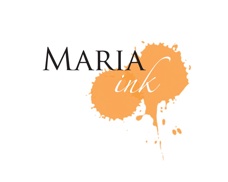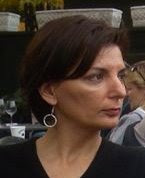Yesterday, I finished reading Gretchen Rubin’s The Happiness Project. I learned about it on one of my trails, and it sounded like it would be interesting, at a minimum worth a glance.
The book (and a blog) essentially arose from a question she asked herself one day on the subway about how happy she was and how she could be happier. And being an avid reader, writer, researcher, and information junkie, she set down the path of figuring out what happiness means to her (and generally to everyone) and how to get more of it.
She read piles of books, immersed herself in innumerable yawn-drawing studies, and queried lots of people about happiness. Frankly, she did far more than I would do, but I loved her exercise. I think she almost drove her family and friends crazy, but really that’s what happens when you become passionate about something – and she was so about happiness.
What I really and truly enjoyed about this book was Gretchen. I think it takes great courage to be honest on the public stage, and she was just that. She openly admitted to what you may call faults but that she recognized as inherent traits that are less than flattering. She boldly proclaimed that she’s not interested in things that should interest her, that she needs gold stars, that she doesn’t err on the side of thinking of others first. But don’t get me wrong, she has some wonderful traits to go along with the ones just mentioned. And, she demonstrated (or at least wrote about) transformation, sometimes painful, sometimes not. She learned a lot. And I learned a lot as a result.
She generated a list of commandments. I won’t be a spoiler because I think it’s worth a read, but I will say that ‘act the way I want to feel’ is something that I think about daily. She came up with her list of life lessons and she named them Secrets of Adulthood. Again, not to dilute the experience should you have it, but a reaffirmation that ‘what you do every day matters more than what you do once in a while’ was much needed.
I realized that some of the things she learned that she wanted / needed / should do were things that I already do. This doesn’t make me a saint, it just means that it’s in my nature. Like sending birthday cards, leaving love notes for my husband, and making gifts. It’s about making other people happy. When others are happy, I’m happy. When I’m happy, others are happy. But…I also learned how to reciprocate those little acts, something that I think I sometimes do but sometimes miss.
I’m guilty of some of the things she wanted to overcome. I know that if I think I’m happy, I will be – power of positive thinking and all that. I do believe in it. I also believe that you have to rid yourself of the negative, and she agreed. Over the past year or so, I have eliminated the stress and distress in my life, and I’m practically giddy as a result.
I also realize that creativity is so important to my day. I write a great deal as part of my work and have many performing arts clients which help fill my creative well. I write for pleasure, and I keep the April 1st Project, which to me is a collage of my path. I make things – books, drawings, etc. And I cook like a fiend.
Little things she did and recognized resonated with me – working / writing in 90 minute blocks of time, letting things go, taking time to be silly. I loved that she loves children’s literature and that she kept a blank book (so me). I really liked that she looked at advice in the form of quotes and saw how she could go down the path of the advice and then sometimes acknowledged that it wasn’t for her – so she would find her own way. She didn’t discard, she re-imagined. Great lesson. Do what’s right for you and be honest about it.
She talked a great deal about friendship and how it leads to happiness. Again, she read lots of studies and provided factual information to support this. Strong relationships lengthen life, boost immunity, and cut the risk of depression. And in the spirit of not gossiping and cutting people slack, she shared this quote from Flannery O’Connor:
From 15 to 18 is an age at which one is very sensitive to the sins of others, as I know from recollections of myself. At that age you don’t look for what is hidden. It is a sign of maturity not to be scandalized and to try to find explanations in charity.
As she put it, finding explanations in charity is a more holy way of saying cut people slack. Either way, it’s good advice.
She keeps journals and takes notes like crazy – how can I not like this woman?! But what she did that most helped her and could help all of us was a trick she learned from good ole Ben Franklin – she created a resolutions chart. My husband would be thrilled to know that an Excel spreadsheet is in the making. She approached her Happiness Project by determining her truths and outlining areas of focus. She broke those into bite-size chunks and fit them into months. Then each month she dug deeper and created specific resolutions to support what she was trying to achieve. This is so much like my ‘line of work.’
I thoroughly enjoyed this book, captured many quotes that Gretchen shared so that they can help me along, and I created my own commandments. Next up, a resolutions chart. Perhaps I’ll share it here.

